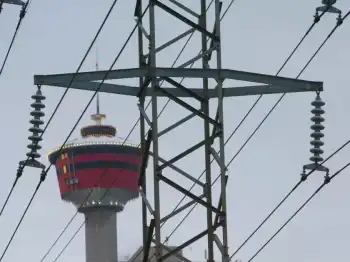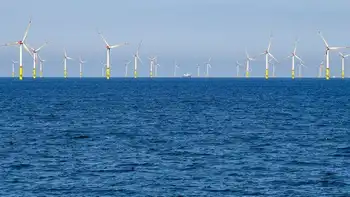Smart meters coming this fall
All municipalities are required to have smart meters installed in residences and small businesses by the end of next year.
John Mattinson, president of OPC said the company, of which the city is the sole shareholder, said they plan to install the smart meters between August and November of this year.
Orillia city council approved a request by OPC to exceed its capital expenditure threshold for 2009 by $718,000 in order to accommodate the conversion to smart meters.
Once the province flips the switch on the smart meters, users will be charged based on time-of-use rates instead of total consumption as they do now. Time-of-use rates will be divided into on-peak (which will have the most expensive rate), mid-peak and off-peak. On-peak, mid-peak and off-peak times will vary depending on time of year and weekends versus weekdays.
Once all the reporting infrastructure is in place, the digital smart meters will record when users are consuming power and bill them according to the time-of- use rates.
The idea is for people to use power during off-peak hours, Mattinson said.
According to city councillor Maurice McMillan, an active watchdog of the electricity and energy sector, that would be easier if the meters featured a display so users could see exactly what their power usage was at any given time.
"If they can't see what they're using, how will they know to back off?" he asked.
He uses the example of a gas station where drivers are able to see the base price of the commodity along with how much they're paying.
"You don't go down to the gas station and let them bill you tomorrow," he said.
While no such display is included with the new meters, Mattinson said consumers can log on to a website and track their usage. Even before time-of-usage rates go into effect, the website will be available so users can track their power consumption and begin to adjust accordingly.
"There will be an opportunity to kind of practice," he said.
The meters will be compatible so that in the future a digital display such as the one McMillan advocated for, can be purchased, although as the technology is still evolving, no hard examples or prices are available.
Here in Orillia, the smart meters that are being installed starting this summer are the same kind the city uses to monitor water usage. Because of that, in the future, there may be the opportunity to look at ways of synergizing between the two services, Mattinson said.
Mattinson said switching the old meters for smart meters won't involve any more inconvenience than when OPC has to change meters now. After smart meters are installed, an information package will be left for residents and businesses about the meter.
Related News

Alberta breaks summer electricity record, still far short of capacity
CALGARY - Consumer use hit 10,638 MW, blowing past a previous high of 10,520 MW set on July 9, 2015, said the Alberta Electric System Operator (AESO).
“We hit a new summer peak and it’s likely we’ll hit higher peaks as the week progresses,” said AESO spokeswoman Tara De Weerd.
“We continue to have ample supply, our generators are very confident there aren’t any issues.”
That new peak was set at 4 p.m. but De Weerd said it was likely to be exceeded later in the day.
Heightened air conditioner use is normally a major driver of such peak electricity consumption, said De Weerd.
She…




